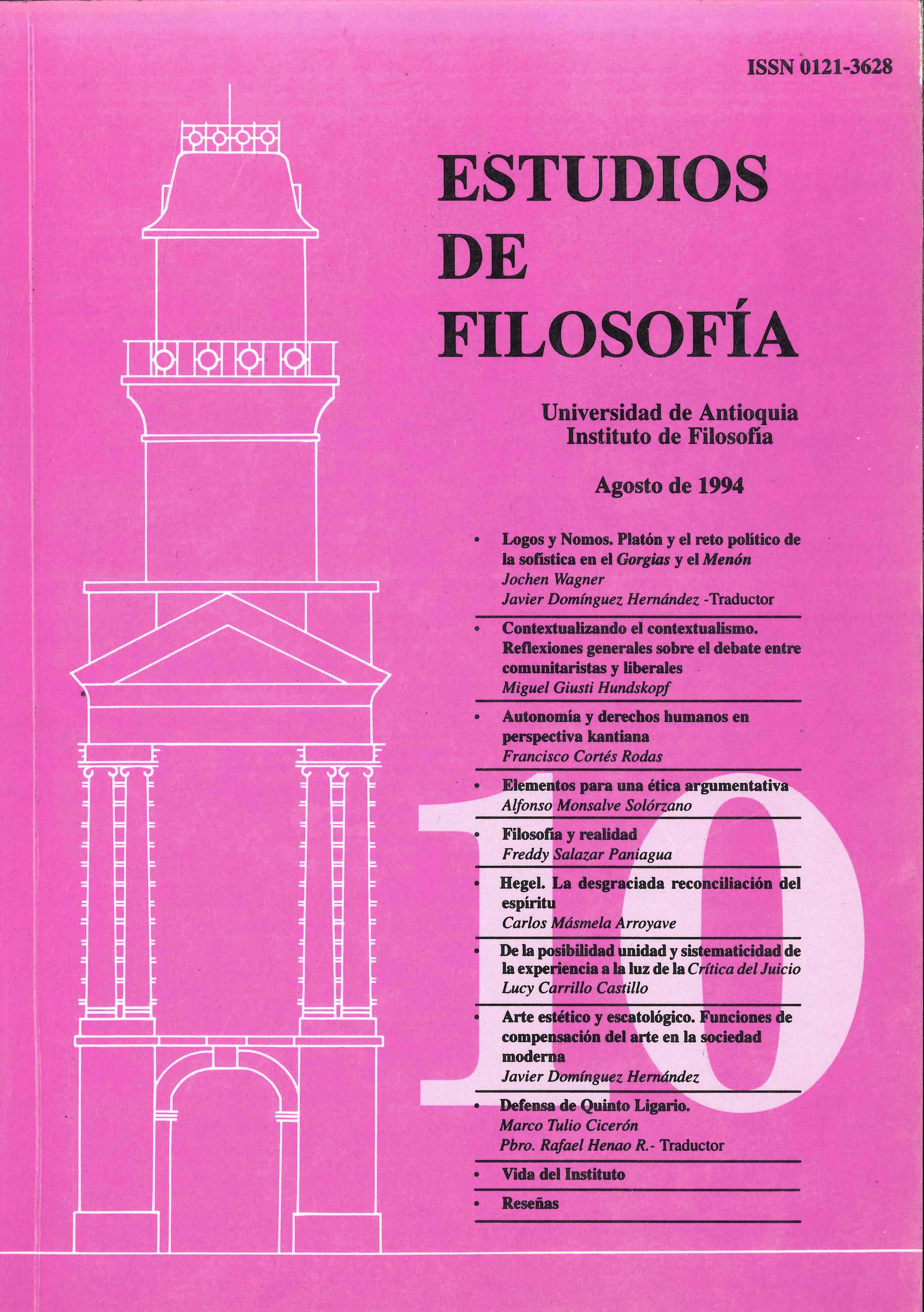On the possibility, unity and systematic character of experience, in the light of the principle of finality in nature in Kant's Critique of judgement
DOI:
https://doi.org/10.17533/udea.ef.338805Keywords:
Kant, Critique of judgement, teleologyAbstract
The article is a commentary on one of the basic thesis of the introduction to the Critique of Judgment. The fundamental activity of the faculty of judgment is reflection, mediating between what is conditioned (nature) and what is unconditioned (freedom). Reflection is not knowledge, but without it knowledge is impossible. This question is present in the concepts of nature and experience; together with the concept of nature transcendental reflection must establish the idea of a unity and totality of experience, in order to adjust our cognitive faculties to the object of knowledge. But such an act of reflection implies the admission of a principie of finality in nature, analogous to the realm of freedom. This idea of teleology guides human thought, experience and culture, subordinating knowledge to morality.
Downloads
Downloads
Published
How to Cite
Issue
Section
Categories
License
Copyright (c) 1994 Lucy Carrillo Castillo

This work is licensed under a Creative Commons Attribution-NonCommercial-ShareAlike 4.0 International License.
Authors who publish with this journal agree to the following terms:
1. The Author retains copyright in the Work, where the term "Work" shall include all digital objects that may result in subsequent electronic publication or distribution.
2. Upon acceptance of the Work, the author shall grant to the Publisher the right of first publication of the Work.
3. The Author shall grant to the Publisher a nonexclusive perpetual right and license to publish, archive, and make accessible the Work in whole or in part in all forms of media now or hereafter known under a Creative Commons Attribution-NoCommercia-ShareAlike (CC BY-NC-SA 4.0), or its equivalent, which, for the avoidance of doubt, allows others to copy, distribute, and transmit the Work under the following conditions: (a) Attribution: Other users must attribute the Work in the manner specified by the author as indicated on the journal Web site;(b) Noncommercial: Other users (including Publisher) may not use this Work for commercial purposes;
4. The Author is able to enter into separate, additional contractual arrangements for the nonexclusive distribution of the journal's published version of the Work (e.g., post it to an institutional repository or publish it in a book), as long as there is provided in the document an acknowledgement of its initial publication in this journal;
5. Authors are permitted, and Estudios de Filosofía promotes, to post online the preprint manuscript of the Work in institutional repositories or on their Websites prior to and during the submission process, as it can lead to productive exchanges, as well as earlier and greater citation of published work (see The Effect of Open Access). Any such posting made before acceptance and publication of the Work is expected be updated upon publication to include a reference to the Estudios de Filosofía's assigned URL to the Article and its final published version in Estudios de Filosofía.















